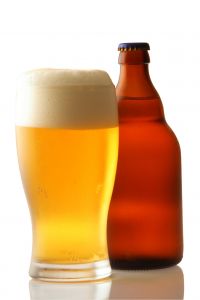Group Aims to Curb Texas DUI Fatalities
An advocacy group in Midland, Texas, about 5 hours north of San Antonio, is working hard to put the brakes on DUI fatalities in the state by pushing a hike in taxes on beer. 
San Antonio DUI accident attorneys understand that the group is working to at least have the issue discussed on the floor of either the state House or Senate.
No formal bill has been drafted, but the group, Stop DUI, says that per capita, Texas residents drink more beer than those in any other state, and lead the nation in DUI crashes.
And they’re right.
The National Highway Traffic Safety Association reports that of the 37,261 DUI fatalities in 2008, 3,382 were in Texas. That accounts for 9 percent of all DUI fatalities in the country. Only California had more, with 3,434 DUI deaths that year.
Of all the crashes in Texas involving DUI last year, the Texas Department of Transportation reports that Bexar County was among the highest in the state, with 2,016. Only one other county ranked higher, with 2,657 DUI crashes.
Of the 1,039 people killed in Texas DUI crashes last year, 109 were pedestrians, 155 were passengers driven by the DUI driver and 140 were people in other vehicles.
Whether a measure increasing beer taxes would actually curb the number of DUI fatalities in the state remains to be seen. However, given the scope of the problem, it certainly seems worth a shot.
The advocacy group suggests that by raising excise taxes by just five cents, the state could generate roughly $315 million annually in revenue (which gives you an idea of how much Texans like their beer). What they are proposing is a tax increase of 19 cents per gallon (which is what it is now) to 35 cents per gallon – a 16-cent-per-gallon increase. In neighboring states like New Mexico and Oklahoma, it’s 41 and 40 cents, respectively.
Last November, the state reportedly made approximately $8 million on beer and ale excise taxes, according to News West 9. The group estimates that such a tax hike could generate another $4 million per month.
That may be enough to spur legislators to act on the measure, if the benefit to the safety of Texas motorists isn’t.
Still, will people actually drink less if it costs more?
It may depend on how steep the increase. Although previous research has shown that slight fluctuations don’t impact a person’s willingness to buy or consume alcohol, a recent Canadian study reveals differently.
Scientists in British Columbia reviewed data from 1989 through 2010. After factoring in various economic indicators, they found a direct link between the increase in prices and a reduction of alcohol consumption. But the amount mattered.
For every 10 percent increase in the minimum price of an alcoholic drink, they found the consumption fell about 6.8 percent for liquor, 8.9 percent for wine, 13.9 percent for ciders and 1.5 percent for beers. So it’s not an exact correlation, but it can be affected.
Additionally, it’s important to note that this study focused only on alcohol that is legally sold. Alcohol purchased or consumed by minors couldn’t be effectively measured.
Unlike in Canada, the U.S. government does not set a minimum price on alcohol, and it is up to the state to determine taxes on such goods.
Four years ago, legislators in Texas tried to approve a measure that would raise excise taxes on alcohol, along with soda and candy. The bill passed, but by the time it did, alcohol had been dropped from the list.
If you’ve been injured in a San Antonio DUI accident, contact the Herrera Law Firm at 800-455-1054 for a confidential consultation.




